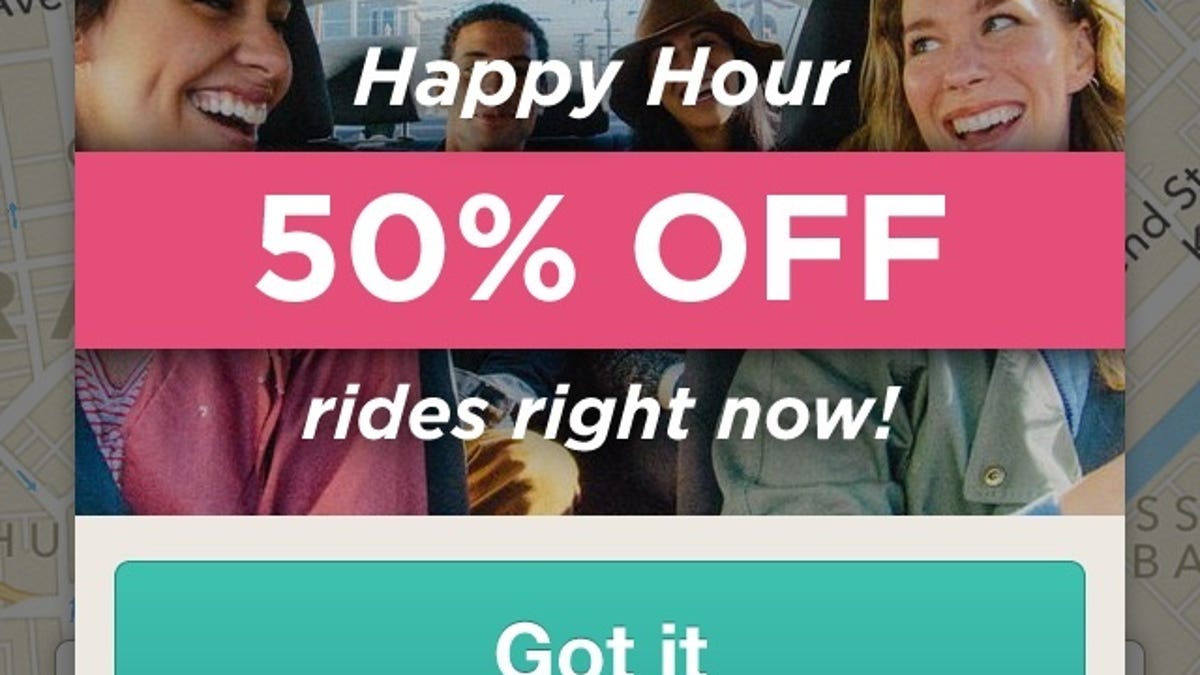Lyft launches 'Happy Hour' fares, its answer to surge pricing
The peer-to-peer car service says it'll do one better than its competitor Uber. Lyft lowers the cost of a ride when business is slow.

Lyft has launched "Happy Hour" rates -- fares that are 10 percent to 50 percent cheaper than normal during slow business hours -- to encourage more rides during those periods, the company announced Tuesday.
Slow times are typically midday and after rush hour during the work week.
"With Happy Hour, Lyft's prices are fully dynamic, which is the way it should be," the company said in a post on its Web site.
This sounds like a bit of a dig at its competitor Uber, whose dynamic pricing model has resulted in some unhappy customers. First introduced by Uber, and more commonly known as surge pricing, the rate model increases fares based on how many cars are on the road and how busy they are.
Though Lyft markets itself as a less expensive ride, it launched its own version of surge pricing for peak hours, called Prime Time Tips, at the end of last year. With Prime Time, rates during peak hours never go above 200 percent of the normal fare. Uber has no such cap. Lyft said today that adding Happy Hour makes its rides "the most affordable option."
Sidecar, another ride-share competitor, recently launched a marketplace model, which allows drivers to set their own prices, including surge prices when they think demand is high.

